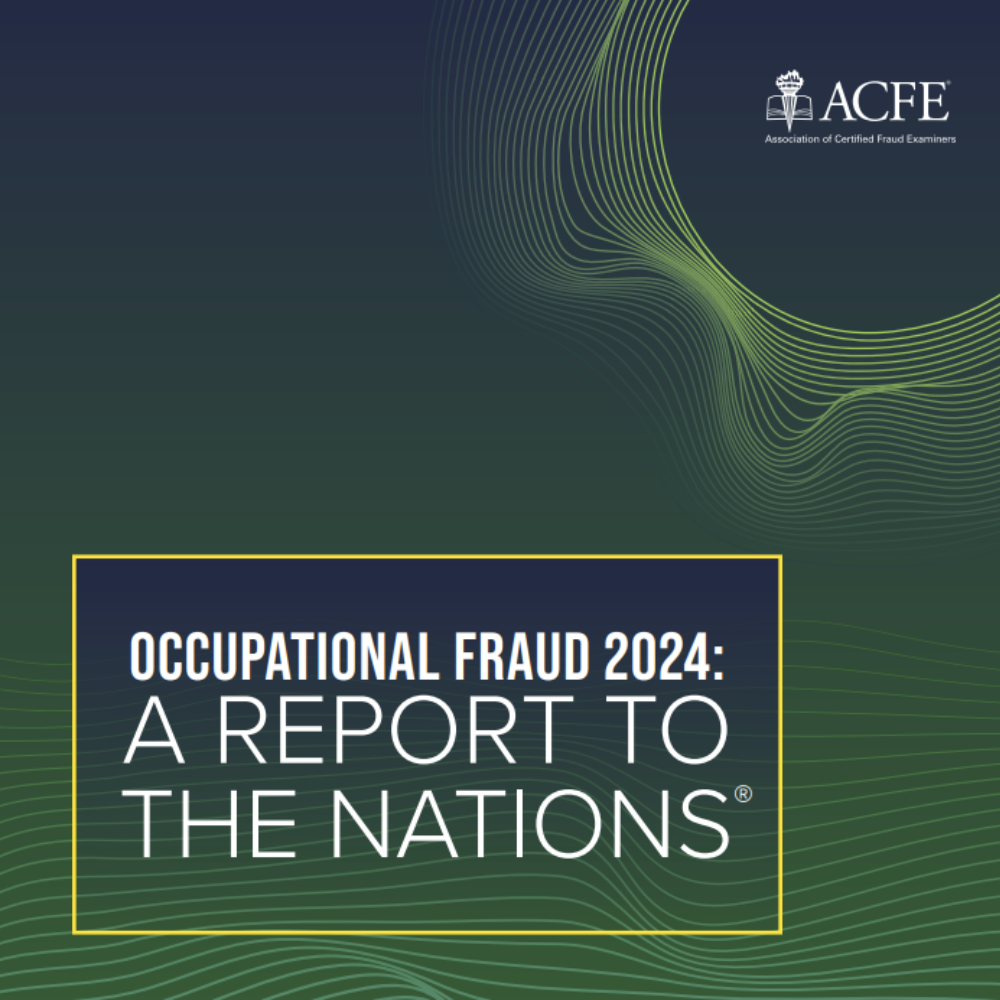Dispute Resolution: Türkiye
In this article, we provide a comprehensive exploration of legal practice in Türkiye, covering a wide range of topics including conflicts of interest, money laundering regulations, data protection laws, and alternative dispute resolution methods. We outline ethical standards for lawyers and discuss the regulatory framework governing legal practice. Additionally, we highlight recent developments in arbitration and mediation, emphasizing Türkiye's commitment to modernizing its legal system.
19.03.2024

The Turkish legal system, characterised by its comprehensive and hierarchical structure of laws and courts, offers a variety of dispute resolution procedures. These include traditional court proceedings and various alternative dispute resolution ("ADR") methods.
At the apex of the hierarchy of norms is the Constitution, which governs the functioning of the state, its organs and the fundamental rights and freedoms. Duly ratified international treaties have the force of laws and cannot be challenged on the basis of unconstitutionality. Moreover, in cases of conflict between a treaty and domestic law on fundamental rights and freedoms, the former takes precedence. Presidential decrees and regulations must comply with the Constitution and the laws. While judicial decisions are not a primary source of law, precedents set by high courts, particularly the Constitutional Court and the Court of Cassation, play a significant role in judicial interpretations.
The Turkish judicial organisation is divided into various branches: ordinary judiciary (public prosecutor's office, civil courts and criminal courts), administrative judiciary (administrative and tax courts and the Council of State), constitutional judiciary (the Constitutional Court) and dispute judiciary (the Court of Jurisdictional Dispute). In addition, the electoral judiciary (the Supreme Election Council, the highest electoral authority) and account judiciary (the Court of Accounts, responsible for auditing public accounts and political parties) are also part of the Turkish state's judicial organisation.
As for the ordinary judiciary, first instance courts and regional appeal courts are divided into civil and criminal courts. The Court of Cassation is the final appellate court for civil and criminal cases to ensure uniformity in the application of the law.
Criminal judgeships and criminal courts include criminal judgeships of peace and criminal courts of first instance as well as other specialised courts (e.g., assize courts and criminal courts of intellectual and industrial property rights).
Civil courts are divided into three categories: (1) courts of peace, dealing with a limited number of disputes, including lease disputes; (2) courts of first instance, dealing with private law disputes in general; and (3) other specialised courts (e.g., commercial courts, labour courts, and courts of intellectual and industrial property rights).
The Constitutional Court reviews the constitutionality of laws, presidential decrees and the rules of procedure of the Grand National Assembly of Türkiye, as well as the procedural aspects of constitutional amendments. It also hears individual applications for alleged violations of constitutional rights.
As for ADR procedures, different methods are recognised for fast, economical and peaceful resolution of disputes: mediation, conciliation, expeditious trial procedure and settlement with administrative bodies are among the mechanisms under the Turkish legal system.
To reduce court caseloads and promote amicable settlements, mandatory mediation was introduced in 2018. Accordingly, parties are required to apply to a registered mediator for the resolution of certain disputes before appearing in court.
Additionally, arbitration is a common ADR mechanism, particularly in commercial disputes. The Code of Civil Procedure and the International Arbitration Law are the two main pieces of law setting forth the rules applicable to arbitration. In addition, the International Private and Procedure Law provides rules on the recognition and enforcement of foreign awards. Türkiye is also a party to the 1958 New York Convention.
As ADR mechanisms continue to develop in Türkiye, various arbitration centres provide dispute resolution services for both local and foreign parties. Among them are the Istanbul Chamber of Commerce Arbitration and Mediation Center ("ITOTAM") and the Istanbul Arbitration Centre ("ISTAC").
Year in Review
Recently, the high courts delivered pivotal decisions that reshaped the resolution of controversial issues, marking a turning point and providing clarity in the application of the law.
The Constitutional Court recently ruled that the Turkish Competition Authority violated the right to residential immunity through on-site inspections conducted without a judicial decision.[1] In reaching its decision, the Constitutional Court stated that Article 15 of the Law on the Protection of Competition violates the Constitution by not limiting the conditions for inspection to obtaining a judicial decision on whether or not there is an imminent delay. The Court further highlighted the need for legislative review to prevent similar violations in the future.
In another notable decision,[2] the Court of Cassation Grand General Assembly on the Unification of Judgments addressed the issue of pursuing debt collection against the same debtor for the same debt through multiple methods. Consequently, it ruled against simultaneous prosecution of the debtor through both foreclosures of the pledge and foreclosure of bills of exchange for the collection of receivables secured by both the pledge and bill of exchange. This decision stands out for its role in harmonising conflicting views among various Court of Cassation chambers. The General Assembly clarified that, according to the Execution and Bankruptcy Law, a creditor with a claim secured by pledge is obligated to primarily pursue the conversion of the pledge into cash if the debt remains unpaid. Emphasising this obligation, it also noted that the creditor derived no legal benefit from the second enforcement proceeding, underlining that this second execution proceeding unnecessarily occupies the execution offices.
In the realm of arbitration, the 11th Civil Chamber of the Court of Cassation established a legal precedent in its decision of 14 December 2022,[3] affirming the validity of arbitration clauses in agreements specifying arbitration for certain disputes while designating state courts for others. The case involved a share purchase agreement mandating arbitration for disputes relating to a specified compensation liability clause. The Court of Cassation upheld the arbitration clause, underscoring its applicability to the dispute in question despite a general clause referring disputes to Istanbul courts and enforcement offices. Establishing a legal precedent that significantly reinforces the importance and enforceability of arbitration clauses for specific disputes, this landmark ruling affirms the judiciary's commitment to upholding the contractual provisions governing dispute resolution and sets a compelling precedent for similar cases in the future.
In another significant ruling dated 19 June 2023,[4] the Sixth Civil Chamber of the Court of Cassation sets a crucial precedent for the enforcement of foreign arbitral awards. The decision underlines that objections to the validity of arbitration agreements, if not raised during arbitration, cannot be considered during the enforcement stage. Reinforcing the principle that objections to the validity of arbitration agreements must be raised during arbitration, this ruling enhances the clarity and consistency of enforcement practices, emphasising the importance of addressing such objections in the appropriate forum.
Another landmark decision by the 11th Civil Chamber of the Court of Cassation[5] emphasised the validity of the arbitration clause. Notably, the respondent's signature was present on the initial page of the contract, where the first clause explicitly states the parties' agreement under specified conditions. Consequently, the Court definitively affirmed the parties' intent to arbitrate, despite the absence of the respondent's signature from the specific page containing the arbitration clause.
Addressing long-standing uncertainties, these decisions played a crucial role in settling legal ambiguities and establishing precedents to guide future interpretations and applications of the law.
Court Procedure
i. Overview of court procedures
Türkiye's legal framework operates under a tiered court system, a structure that has been in place since the integration of the regional courts of appeals in 2016. This system is divided into three levels: first instance courts, regional courts of appeal and the apex appellate courts. Appeals against judgments of regional courts of appeal are ultimately reviewed by the Court of Cassation in civil and criminal matters and by the Council of State in administrative matters. Their decisions are final and binding only on the parties of the dispute.
There are thresholds for appealing a court decision in Türkiye, depending mainly on the nature of the case and the monetary value of the dispute. These thresholds are updated every year.
The Code of Civil Procedure sets forth the procedural rules for private law disputes in courts and domestic arbitration, while the Code of Criminal Procedure sets forth procedures in criminal proceedings. Procedural rules of administrative matters are stipulated under the Code of Administrative Procedure. These three laws form the procedural basis for all legal proceedings in Türkiye.
ii. Procedures and time frames
Commencing a civil lawsuit in Türkiye follows a systematic procedure. It involves several key stages, and throughout the proceedings, practitioners should follow strict statutory deadlines; failing to abide by one could result in significant consequences.
The process begins with the plaintiff filing a claim with the competent court. The submission must contain specific elements, including the details of the dispute and the relief sought, to comply with legal requirements.
In general, the parties exchange all written documents through the court in specific time frames, typically two weeks from the service of the relevant submission or a judgment in civil cases and 30 or 60 days in administrative cases.
All parties are expected to submit their evidence along with their initial pleadings and before the first hearing at the latest. However, additional evidence may be presented during later stages, subject to other parties' consent or rules governing amendments of claims. All submissions must adhere to procedural requirements specified in the Code of Civil Procedure.
Civil actions are subject to the statute of limitations, which varies depending on the nature of the claim (e.g., two years in tort cases and 10 years in ordinary actions).
Türkiye's judiciary operates distinct case management systems tailored to the nature of disputes, with each system featuring its typical timelines. These are categorised into civil, criminal and administrative tracks. The duration of a trial before first instance courts may take up to two years, depending on the case's complexity and the court's caseload. However, this time frame may be extended in instances involving, for example, intricate fact-finding issues or a large number of parties.
The Turkish legal framework accommodates expedited and interim measures for urgent judicial interventions to protect rights or interests that are at risk of irreparable damage. In civil law, parties may seek interim injunctions and provisional attachments to maintain the current state until a dispute's final adjudication. These injunctions are typically adjudicated within a few days of the application. In criminal matters, applications for preventive detention, especially in cases of grave offenses or potential flight of the suspect, are usually processed within 24 to 48 hours. Requests for a stay of execution against administrative acts are generally addressed and resolved within a month.
While these frameworks aim to balance judicial expediency with safeguarding legal rights, actual case timelines may vary depending on individual cases and court schedules.
iii. Class actions
A 'group lawsuit' in Türkiye, found in Article 113 of the Code of Civil Procedure, reflects an approach distinct from the class actions commonly found in common law jurisdictions.
Unlike class actions in common law jurisdictions, Turkish group lawsuits do not involve claims for damages. Turkish law places a stronger emphasis on preventing and remedying unlawful instances, particularly in consumer protection matters.
The procedural aspects of group lawsuits in Türkiye are governed by the Code of Civil Procedure and other relevant laws. These establish the framework for initiating such lawsuits, specifying the eligible parties and outlining the types of claims that can be pursued. Group lawsuits are not common in Turkish legal practice.
iv. Representation in proceedings
As a rule, Turkish law does not require the parties to be represented by counsel. The ability of litigants to represent themselves in legal proceedings, as well as the capacity for legal entities to do so, is governed by the Code of Civil Procedure. Accordingly, individuals can represent themselves in litigation proceedings. Legal entities, such as companies or associations, must be represented by their legal representatives or by a lawyer. The legal representative of the joint stock corporation is the board of directors and the board of managers in limited liability partnerships, who have the authority to act on the entity's behalf.
However, there are exceptions where self-representation might not be permitted, even for individuals. For instance, representation by a lawyer is required in cases involving minors, individuals with certain disabilities and those facing criminal charges that could result in a sentence of more than five years. The legal system ensures that, in these scenarios, where the defendants may be indigent, they are provided with adequate legal support via the assistance of the bar associations.
v. Service out of the jurisdiction
The 1965 Hague Convention outlines the international procedures for serving legal documents abroad. However, Türkiye has made a reservation regarding Article 10 of the Convention. Article 10 deals with alternative methods of serving documents, such as postal channels or directly through judicial officers, officials or other qualified individuals in the destination state. Türkiye's reservation means that these alternative methods are not applicable.
There may be distinctions in the rules depending on whether the documents are for initiating proceedings or other judicial or extrajudicial documents. The initiating documents typically require more formal service procedures to ensure that the recipient is adequately informed of the commencement of legal proceedings against them.
The process of serving legal entities outside the jurisdiction generally follows similar principles but must also adhere to the regulations governing legal entities in the receiving state. The entity's registered address, its principal place of business or the address of its legal representation, if available in the receiving state, is typically used for service.
vi. Enforcement of foreign judgments
The enforcement of foreign judgments in Türkiye is primarily governed by the International Private and Procedure Law. Article 54 provides specific conditions that must be met for a foreign judgment to be recognised or enforced.
- There must be a reciprocal agreement between Türkiye and the state where the judgment was rendered or a legal provision or practice in that state allowing for the enforcement of Turkish courts' judgments.
- The judgment should not fall under the Turkish courts' exclusive jurisdiction.
- The judgment must not be in clear contradiction with Turkish public order.
- The party against whom the enforcement is sought must not have been properly served and represented in the proceedings in the foreign court according to the laws of that state, or a judgment must have been issued in the absence of the party against whom enforcement is sought, in violation of these laws. The objection by this party in the Turkish court based on the proper service and representation grounds is also required.
After establishing that these conditions are met, foreign judgments can be submitted for recognition and enforcement in Türkiye. The process involves applying to the competent Turkish court, which then assesses the judgment based on these criteria without reviewing the merits of the dispute. The court may decide to partially or fully enforce the judgment or to reject the enforcement request. According to Article 57, foreign judgments that are decided to be enforced shall be enforced as if they were judgments rendered by Turkish courts.
vii. Assistance to foreign courts
Turkish courts assist foreign courts, particularly in the context of the 1970 Hague Convention on the Taking of Evidence Abroad in Civil or Commercial Matters, to which Türkiye is a signatory. This international framework, along with Türkiye's national laws, outlines the types of assistance Turkish courts can provide and the requirements for foreign courts to request such assistance.
Under the Convention, Turkish courts can assist in collecting evidence for use in civil or commercial matters before foreign courts. This includes taking witness testimonies, obtaining documents and performing inspections. Turkish courts may assist in providing relevant judicial documents needed by foreign courts.
The process is initiated by a letter of request from the foreign court, and the assistance is provided within the limitations and conditions set forth by both the Convention and Turkish law. While executing the request, Turkish courts must ensure that the activities comply with Turkish law.
viii. Access to court files
According to Article 141 of the Constitution, court hearings are generally open to the public except in cases where public morals or public security necessitates closed hearings.
While the court hearings are open to the public, individuals cannot obtain pleadings or evidence in relation to ongoing or concluded proceedings. Lawyers are permitted to examine files even where they do not represent a party. However, lawyers may obtain copies of documents from court files only if they are counsel of record. Access to documents designated as confidential is subject to explicit judicial permission.
ix. Litigation funding
Under Turkish law, the funding of litigation by disinterested third parties is a concept that is still evolving and not as common or as clearly regulated as in some other jurisdictions. Turkish law does not explicitly regulate third-party litigation funding, and no specific provisions in the Code of Civil Procedure directly address this issue.
The Turkish legal system traditionally relies on each party bearing its legal costs, with the possibility of the court ordering the losing party to cover the winning party's legal expenses. However, this does not necessarily mean that funding is prohibited.
Legal Practice
i. Conflicts of interest and Chinese walls
Under Turkish law, attorneys are required to avoid conflicts of interest. The Attorneyship Law imposes duties on lawyers to avoid representing conflicting interests that could impair their professional judgement. Namely, Articles 38/1(b) and (c) of the Law oblige a lawyer to refuse to act for a party with conflicting interests in the same matter and to refuse an assignment if he or she has previously served as a judge, arbitrator, public prosecutor, expert witness or official in that matter. In addition, Article 35 of the Professional Rules of Attorneyship adopted by the Union of Turkish Bar Associations stipulates that a lawyer shall not accept power of attorney from two persons in the same case where the defence of one may harm the defence of the other.
The concept of 'Chinese walls' or 'ethical screens' is not explicitly defined in the Attorneyship Law but may be practised within law firms to prevent information sharing that could lead to conflicts. Lawyers failing to manage conflicts appropriately can face disciplinary actions, including fines or even disbarment in severe cases.
ii. Money laundering, proceeds of crime and funds related to terrorism
The Law on the Prevention of Laundering Proceeds of Crime, along with related regulations and international obligations, outlines specific duties and obligations for various parties, including legal professionals, to combat money laundering and terrorism financing.
Lawyers who represent clients in relation to a number of transactions and the management of certain assets fall under the scope of the Law.
Accordingly, said lawyers must perform due diligence when representing their clients, which includes identifying the persons carrying out transactions and those on behalf of or for the benefit of whom the transactions are conducted.
Moreover, lawyers must report any transactions suspected of being associated with illegal activities, including money laundering or terrorism financing, to the Financial Crimes Investigation Board ("MASAK"). They are prohibited from disclosing to anyone, including the parties involved in the transaction, that a report has been made to MASAK.
Lawyers are expected to establish appropriate systems for compliance with anti-money laundering and counterterrorism financing laws, including training and risk-based approaches.
Finally, lawyers who fulfil their obligations under this Law, including reporting suspicious transactions, are protected from civil and criminal liability. The Law also sets forth administrative and criminal penalties for failure to comply with the obligations therein, including fines and imprisonment.
iii. Data protection
The protection of personal data is a constitutional right, and the Personal Data Protection Law ("DPL"), enacted on 7 April 2016, is the main legislation governing personal data protection in Türkiye, which largely mirrors the European Union's General Data Protection Regulation.
Legal professionals, while carrying out their professional responsibilities, are subject to the provisions of the DPL and are obligated to fulfil its requirements. One notable exception is that lawyers are not required to register with the Data Controllers Registry. Aside from this exemption, lawyers are considered data controllers and DPL applies to them.
Concerning personal data transfers, the general rule requires explicit consent from the data subject. However, if conditions specified in the DPL are met, data can be transferred without explicit consent. In terms of international data transfers, the conditions are more stringent. In addition to the specified criteria, there must be adequate protection in the country where the data is transferred. If such protection is lacking, a written commitment for adequate protection by the data controllers in Türkiye and the relevant foreign country, along with the Data Protection Board's authorisation of this commitment, must be in place.
Currently, the Data Protection Board is yet to disclose the countries it deems to have adequate protection, resulting in lawful transfers abroad only through the explicit consent of the data subject or the commitment plus Data Protection Board authorisation.
Documents and the Protection of Privilege
i. Privilege
Under the Attorneyship Law, attorneys are prohibited from disclosing information obtained in their representation of clients. The professional rules of the Turkish Bar Association further stipulate the continuous nature of an attorney's confidentiality obligation.
Exemptions to the duty of confidentiality include the client's consent and a state of necessity. Examples of a state of necessity may include disputes over matters such as legal fees or the attorney facing disciplinary penalties under legal professional rules, necessitating the attorney to prove their case. However, termination of the attorney–client agreement or the client's death does not exempt the attorney from this obligation.
Violation of the attorney's duty of confidentiality is considered a violation of the attorney–client relationship under the Attorneyship Law. In such cases, the client may choose to terminate the client–attorney relationship, withhold payment of agreed fees, request a refund of previously paid fees, or, under certain conditions, seek compensation. Additionally, the attorney may face disciplinary proceedings.
All attorneys have the right to invoke the duty of confidentiality, irrespective of whether they serve as in-house or external lawyers. However, the Turkish Competition Authority takes a different stance on this matter. According to the Guideline on Examination of Digital Data During On-Site Inspections published by the Authority, correspondence relating to the client's right of defense copied during on-site inspection benefits from attorney–client privilege only if the correspondence is with external lawyers. This unique approach is specific to the Competition Authority, and there is currently no precedent resolving the ongoing debate on this issue.
Turkish citizenship is a mandatory requirement for practising law in Türkiye, according to the Attorneyship Law. Foreign attorneys, restricted to offering advice on international law through attorney partnerships, must follow Turkish laws, regulations and professional rules. As a result, the duty and right of confidentiality outlined by the Law also extend to foreign attorney partnerships and their international partners, as Turkish legal standards bind them.
ii. Production of documents
In Turkish court proceedings, there is no general obligation to disclose documents, aligning with the principle that individuals are not compelled to present documents that may be detrimental to their case. In contrast to common law jurisdictions, Turkish law does not extensively allow for document production and discovery. Turkish courts typically do not require parties to produce documents unless there are exceptional circumstances.
Pursuant to Article 219 of the Code of Civil Procedure, the fundamental principle is that parties must disclose all evidence they intend to rely on. Parties are not obliged to disclose all relevant documents but only those they deem appropriate. Further, Article 219 also permits the submission of digital documents as printouts, provided that the digital copies are preserved for the court's examination.
Articles 220 to 222 of the Code of Civil Procedure outline the circumstances regarding document production. Article 220 allows document production if the judge is convinced that the request is lawful, the document is necessary to prove a fact, the other party admits to having the document or remains silent upon production request, or the document's existence is confirmed by official records or acknowledged in other documents. Failure to comply with the court's order of document production may result in the court's acceptance of the requesting party's statements regarding the content of the requested document.
Additionally, Article 221 imposes a document production obligation on third parties, subject to the criteria outlined in Article 220. Failure by a third party to comply with this obligation requires an explanation of their reasons and submission of proof.
Finally, according to Article 222, commercial courts may order ex officio or upon a party's request for the production of the parties' commercial books in commercial disputes.
Alternatives to Litigation
i. Overview of alternatives to litigation
Türkiye, facing a significantly excessive workload problem in its judicial system, has implemented various measures to develop ADR methods to reduce the judiciary's workload.
ii. Arbitration
Arbitration in Turkish law is governed by both national legislation and international conventions. The key legal frameworks are outlined in the Turkish International Arbitration Law and the Code of Civil Procedure. Both align with the United Nations Commission on International Trade Law ("UNCITRAL") Model Law on International Commercial Arbitration (the UNCITRAL Model Law). Specifically, the International Arbitration Law sets forth rules for international arbitration in Türkiye, while the Code of Civil Procedure addresses arbitration in the absence of a foreign element and is conducted in Türkiye as the place of arbitration, referred to as 'domestic arbitration'.
ITOTAM and ISTAC are prominent arbitral institutions in Türkiye. ITOTAM, established in 2014, offers Arbitration Rules influenced by UNCITRAL and other modern rules. On the other hand, ISTAC, founded in 2015, operates under its own Arbitration Rules, drawing inspiration from international standards including the International Chamber of Commerce ("ICC"), the American Arbitration Association and the London Court of International Arbitration Rules. While these institutions are frequently chosen, parties in Türkiye also opt for international institutions like the ICC, especially for large and complex international disputes.
Arbitration is widely favoured in Türkiye, particularly in commercial disputes, due to its speed, efficiency and confidentiality. According to the statements of the ISTAC President, in 2021, ISTAC handled 94 cases. By October 2022, an additional 76 cases were initiated.[6] This preference is driven by the desire for a faster resolution of disputes compared with court litigation.
The only recourse against arbitral awards is a set-aside action. The grounds for a set-aside action are limited to the issues of public policy, arbitrability of a dispute, lack of jurisdiction and procedural irregularities.
The distinction between the Code of Civil Procedure and the International Arbitration Law lies in enforceability. According to the Code of Civil Procedure, domestic arbitral awards and court judgments are equally enforceable. However, the enforceability of an arbitral award within the scope of the International Arbitration Law requires a court-issued document conforming to the enforceability of the arbitral award once the judgment regarding the rejection of the set-aside action is finalised or if the parties have waived the right to set-aside action.
The provisions governing the enforcement of foreign arbitral awards are stipulated in the International Private and Procedure Law. In addition, Türkiye is a party to the New York Convention, which will prevail in the enforcement lawsuits relating to foreign arbitral awards rendered in another contracting state.
In enforcement lawsuits, courts refrain from reviewing the merits of the disputes. In other words, the revision au fond principle applies. The courts' primary consideration is reviewing whether the prerequisites for recognition or enforcement are met. Grounds for dismissal are limited and include the absence of an arbitration agreement, violation of public policy, non-arbitrability under Turkish law and violation of the defendant's rights of defence, among others.
Recent developments in arbitration include establishing the International Arbitration and Alternative Dispute Resolutions Department under the presidency's Directorate General of Law and Legislation, which aims to enhance the expertise of legal professionals and manage Türkiye's arbitration cases as a state party. The Directorate General actively participates in updating International Centre for Settlement of Investment Disputes rules and engaging in UNCITRAL reform initiatives.
iii. Mediation
In Türkiye, mediation has recently become a popular dispute resolution method. The main piece of legislation is the Law on Mediation of Civil Disputes. Accordingly, parties can resort to mediation for any dispute, ranging from small claims to large and complex international disputes. For a dispute to be eligible for mediation, it must be a matter that does not concern the public order and that allows parties to dispose of it freely. This includes all types of private law disputes, including those with a foreign element.
Mediation is a confidential dispute resolution method. Accordingly, the parties involved in mediation and the mediators are prohibited from disclosing mediation-related information and documents in subsequent legal proceedings. Exceptions to this confidentiality are instances where parties agree otherwise, there are legal requirements to lift confidentiality and it is essential for enforcing the mediation settlements.
While mediation in Türkiye is generally voluntary, in some cases, parties are required to mediate their case as a prerequisite for initiating a lawsuit. The instances of this mandatory mediation include, but are not limited to, lease disputes, labour disputes, consumer disputes and commercial disputes.
According to official statistics from the Ministry of Justice,[7] from January 2019 to May 2022, there were 483,702 mandatory commercial mediations, with a track record of 52 per cent having been settled without resorting to litigation.
iv. Other forms of ADR
Under Article 35/A of the Attorneyship Law, lawyers can facilitate settlement between parties, and the settlement agreement has the power of a court judgment if signed together by the parties and their lawyers. This method of settlement is not widely used.
Further, mediation-arbitration has become an ADR method in Türkiye. This hybrid approach involves a two-stage process, starting with mediation and progressing to arbitration if a mutual resolution is not achieved. On 15 November 2019, ISTAC, an internationally recognised arbitration centre in Türkiye, introduced the ISTAC Mediation-Arbitration Rules, marking the first instance of an arbitration centre publishing rules specifically for the mediation-arbitration process.[8]
Outlook and Conclusions
Türkiye has adeptly integrated technological advancements within its judicial system, implementing electronic procedures and virtual hearings. Notably, the country is spearheading transformative legal reforms, particularly in dispute resolution procedures. Recognising the burden on traditional courts, there is a concerted effort to promote ADR methods. Anticipated in the coming years are diverse changes, transformations and developments in this field.
This article was initially published on Lexology’s “In-Depth:Dispute Resolution”. You may access the article on Lexology by following this link.
Footnotes
[1] Constitutional Court, Application No. 2019/40991 (23 March 2023).
[2] Court of Cassation Grand General Assembly on the Unification of Judgments, File No. 2021/2, Decision No. 2023/1 (20 January 2023).
[3] 11th Civil Chamber of the Court of Cassation, File No. 2021/4688, Decision No. 2022/9097 (14 December 2022).
[4] Sixth Civil Chamber of the Court of Cassation, File No. 2023/1902, Decision No. 2023/2401 (19 June 2023).
[5] 11th Civil Chamber of the Court of Cassation, File No. 2021/9200, Decision No. 2023/2895 (11 May 2023).
[6] ISTAC'da yıllık dava sayısı 3 haneli rakamlara koşuyor (available only in Turkish), 2022. Available at https://www.inbusiness.com.tr/sektorler/is-dunyasi/2022/10/26/istacda-yillik-dava-sayisi-3-haneli-rakamlara-kosuyor.
[7] Ticari Uyuşmazlıklarda Dava Şartı Arabuluculuk İstatistikleri (available only in Turkish), 2022. Available at https://adb.adalet.gov.tr/Resimler/SayfaDokuman/9052022162356ticaret%20%20%2004.05.2022.pdf.
[8] İstanbul Tahkim Merkezi – Arabuluculuk Merkezleri Med-Arb İş birliği (available only in Turkish), n.d. Available at https://istac.org.tr/tr/istanbul-tahkim-merkei-arabuluculuk-merkezleri-med-arb-is-birligi/.
-
Gürhan Aydın
Partner

-
Atakan Güngördü
Senior Associate

-
Aleyna Peker
Associate

-
Sezi Atmaca
Associate





